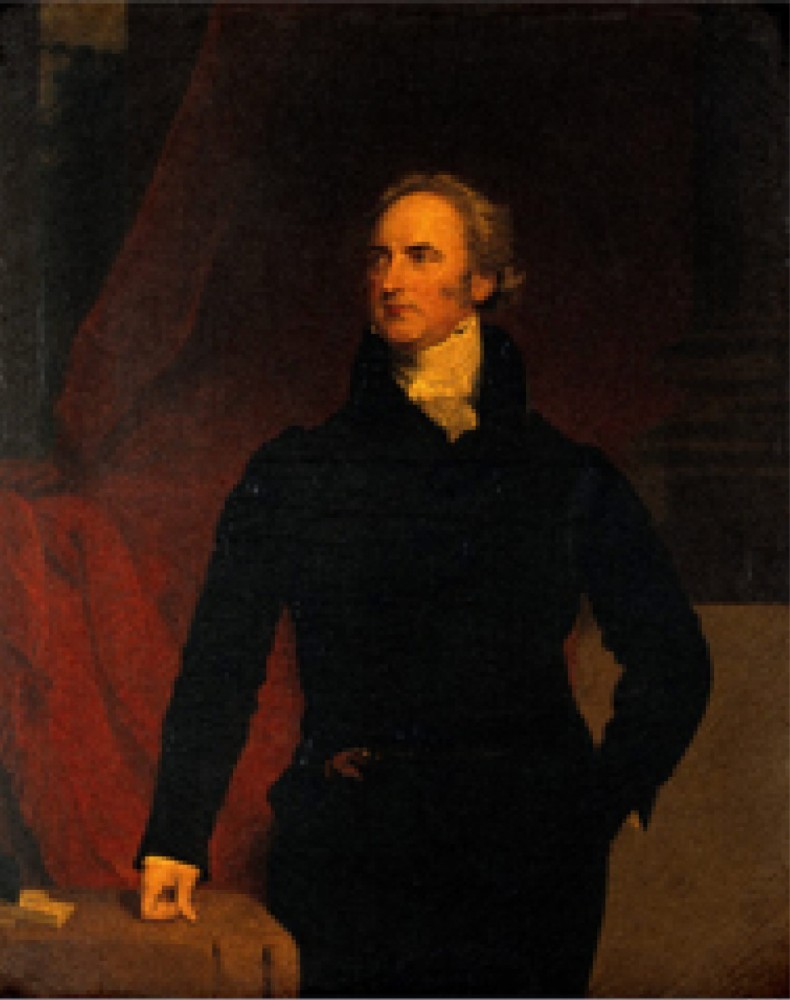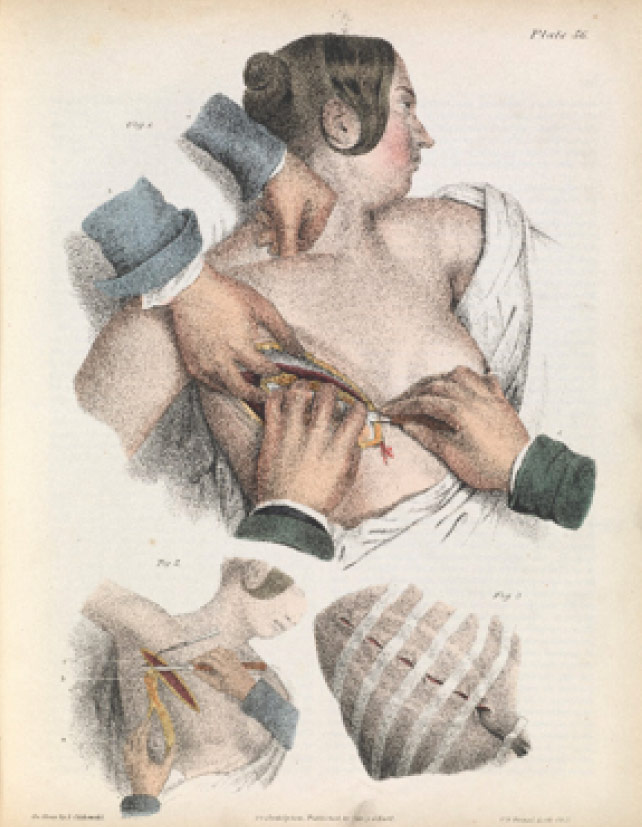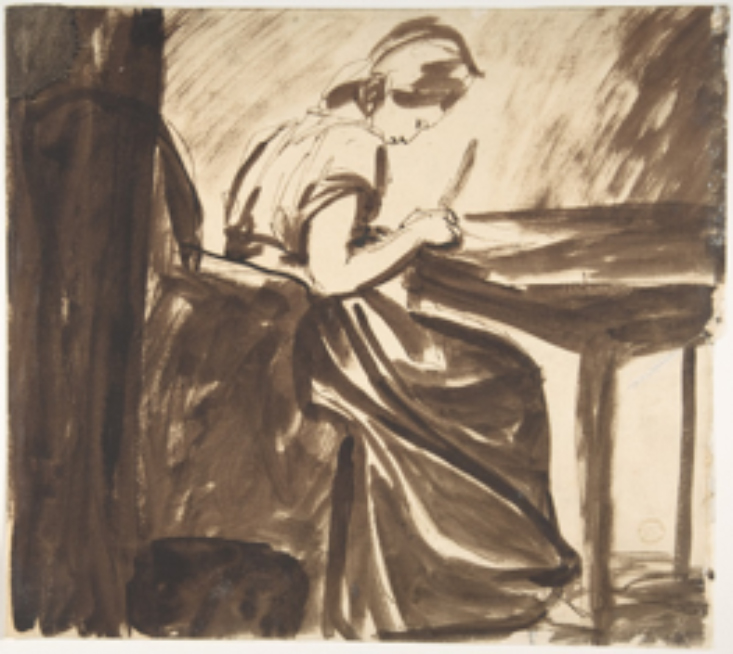
Principal Investigator Dr Michael Brown considers an early nineteenth-century surgeon’s emotional relationships with his female patients.

Since starting the research for this project I have sifted through hundreds of pages of manuscript material produced and collected by nineteenth-century surgeons. This material makes for fascinating reading and contains a wealth of wonderful stories, some of which I will be sharing on this blog. But I want to begin with some research which not only illustrates some of the key themes of this project regarding the emotional cultures of surgery and of the doctor-patient relationship, but which has also made a particularly strong emotional impression on me as a historian.
This material comes from the archives of Sir Astley Paston Cooper (1768-1841), held at the Royal College of Surgeons in London. Cooper was one of the most celebrated surgeons of the early nineteenth century. The son of a Norfolk clergyman, he moved to London in 1784 to study at Guy’s and St Thomas’ Hospital (at that time Guy’s and St Thomas’ were effectively part of the same institution and were known as the ‘United Hospitals’). He showed great aptitude for study and by 1791 was lecturing on anatomy and surgery at St Thomas’ together with his mentor, Henry Cline (1759-1827).
Cooper became a hugely successful surgeon who catered to the elite of London society, treating the Prime Minister, Lord Liverpool, and even King George IV (who knighted Cooper in 1821 after being treated by him for a painful cyst). But alongside his private practice, Cooper also continued to treat the poor at Guy’s Hospital until his retirement in 1825.
Cooper treated many diseases during his career, and kept extensive case notes and letters from patients. However, of all the patients he attended, one particular set really stood out to me, and that is the women he treated for breast cancer. Cooper had treated such women for years, both in hospital and private practice. But in 1829 he published Illustrations of the Diseases of the Breast which cemented his reputation as an expert on the subject and led many concerned women to approach him for advice.
It is important to remember that, in this period, breast cancer was an even more dangerous and fearful disease than it is today. Tumours would frequently break through the skin, forming a painful and disfiguring growth known as a scirrhous. Treatment might involve the application of agonising caustic treatments or the excision of the growth by the knife with little or no pain relief and only a very slender hope of long-term remission, let alone cure. Radical mastectomies i.e. the removal of the whole breast, were not particularly common in this period. Fanny Burney’s famous experience of 1811, described so vividly in her letter to her sister, was the exception rather than the rule.

The painful and extremely dangerous nature of breast cancer meant that it held a particular emotional charge, not only for patients, who often experienced intense anxiety and fear, but also for surgeons, who felt themselves responsible for their patient’s wellbeing, both as professionals and as men. This was, after all, a patriarchal society in which men were expected to act as the guardians and protectors of women and Cooper seems to have had a particular affection for the opposite sex. As his nephew and biographer, Bransby Cooper wrote:
The sensibility of his disposition, which throughout life continued to form one of the most distinguishable and loveable traits of his character, led him in his earliest years, even when delighting in the rough and hazardous sports we have described, to appreciate the charms of female character and court friendship in its society.
This compassionate and gentle character seems to have carried over into his clinical work. As his colleague John Flint South recorded:
His manner with the patients was always encouraging and kind, and not infrequently he enjoyed a little joke with them as he went along. I never recollect to have seen him lose his temper or treat a patient with unkind, rough language, but, on the contrary, with gentle sympathy, which won for him their immediate confidence and warm attachment.
For their part, Cooper’s female patients seem to have responded to this aspect of his personality. The numerous letters he received suggest that his relationship with them was characterised by an emotional tenderness. Indeed, many looked to him as their only hope of salvation. In 1836, for example, Frances White recounted her experience of breast cancer, stating that it was only when she began to notice ulceration around the nipple and bleeding that she first called upon Cooper, something ‘which I very much regret not having done in the first beginning of the Disease’. ‘I never let any Medical Gentleman see it before Sir Astley’ she wrote, ‘for as I resided in the country I had not sufficient confidence to think they could do me any good the doctors in Berkshire having but little experience in such cases. I must always consider my life has been prolonged owing to my going to Sir Astley and the kind attentions of his worthy assistant’.

Women seem to have been drawn to Cooper not simply because of his expertise, but also because of his manner and appearance. His nephew wrote that ‘the respect and attention he always paid to them, together with his elegant form and handsome features … all combined to render him an especial favourite with the softer sex’ and he observed of his private patients that it was often very difficult to extract women from his company.
In many ways, Cooper was a man of his age. There are certain aspects of his personality and behaviour which we might now find unsavoury and which would indeed have been repugnant to many of his contemporaries, particularly his use of grave-robbers and his abduction of stray-dogs for the purposes of vivisection. But in terms of his emotional relations with female patients, he was shaped by the contemporary cultures and values of sensibility. Sensibility might best be defined as a belief in the improvement of human society through a highly-attuned sensitivity to the feelings of others and one of its characteristics was a compassion for suffering and an attentiveness to the needs and wishes of women and children.
However, for a man of feeling like Cooper, breast cancer could prove to be deeply troubling in that the almost inevitable failure of the surgical art to ultimately save the patient undermined his sense of responsibility both as a surgeon and as a man. While little evidence survives as to Cooper’s most intimate thoughts on this matter, there is reason to believe that he was profoundly concerned by the limitations of surgery in such cases and in fact he wrote to numerous fellow surgeons up and down the country to solicit their opinions and gather their experiences of the utility of removing breast tumours by surgical excision. Like most of them, Cooper was not confident of success, but he had little choice but to press on with the techniques at his disposal, for whatever their emotional cost for both surgeon and patient, the alternative was often far worse.